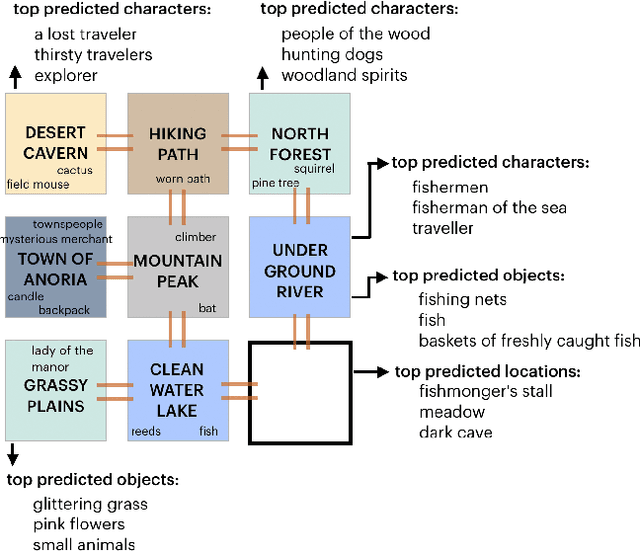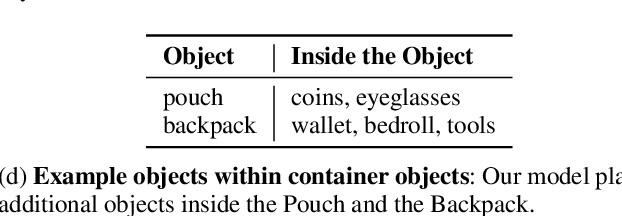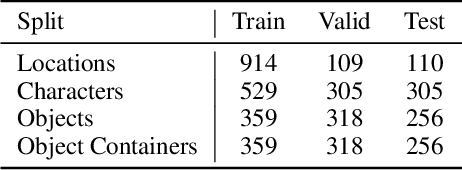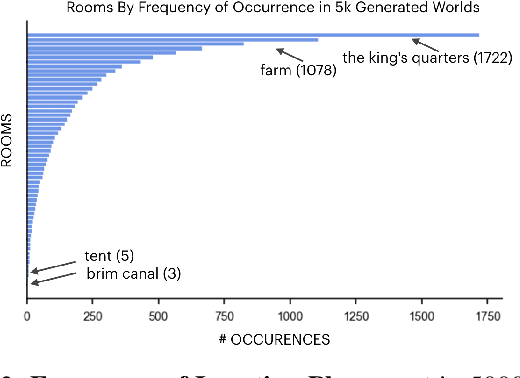Generating Interactive Worlds with Text
Paper and Code
Dec 04, 2019



Procedurally generating cohesive and interesting game environments is challenging and time-consuming. In order for the relationships between the game elements to be natural, common-sense has to be encoded into arrangement of the elements. In this work, we investigate a machine learning approach for world creation using content from the multi-player text adventure game environment LIGHT. We introduce neural network based models to compositionally arrange locations, characters, and objects into a coherent whole. In addition to creating worlds based on existing elements, our models can generate new game content. Humans can also leverage our models to interactively aid in worldbuilding. We show that the game environments created with our approach are cohesive, diverse, and preferred by human evaluators compared to other machine learning based world construction algorithms.
 Add to Chrome
Add to Chrome Add to Firefox
Add to Firefox Add to Edge
Add to Edge